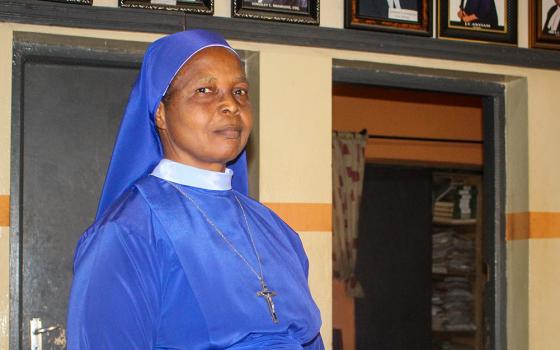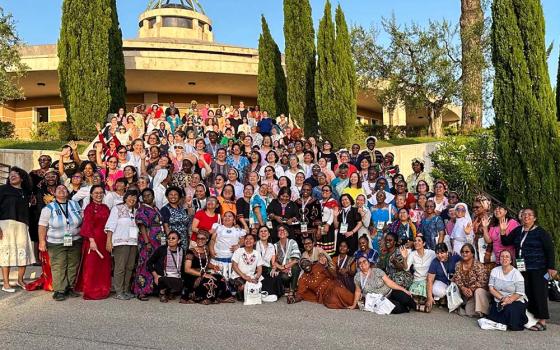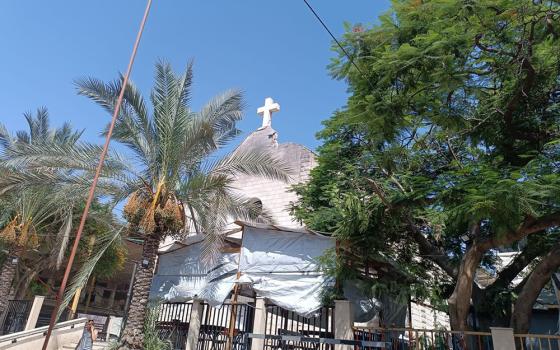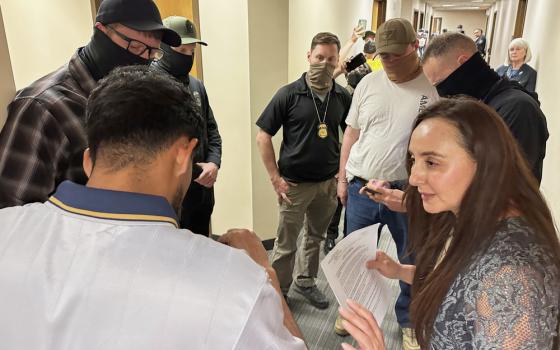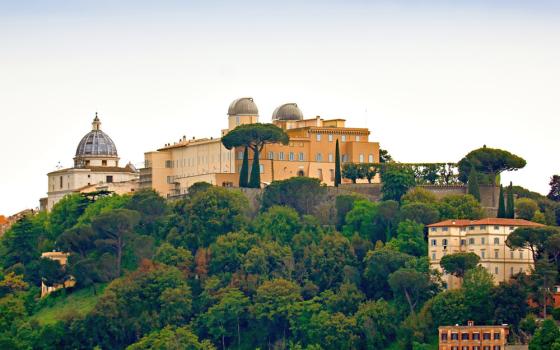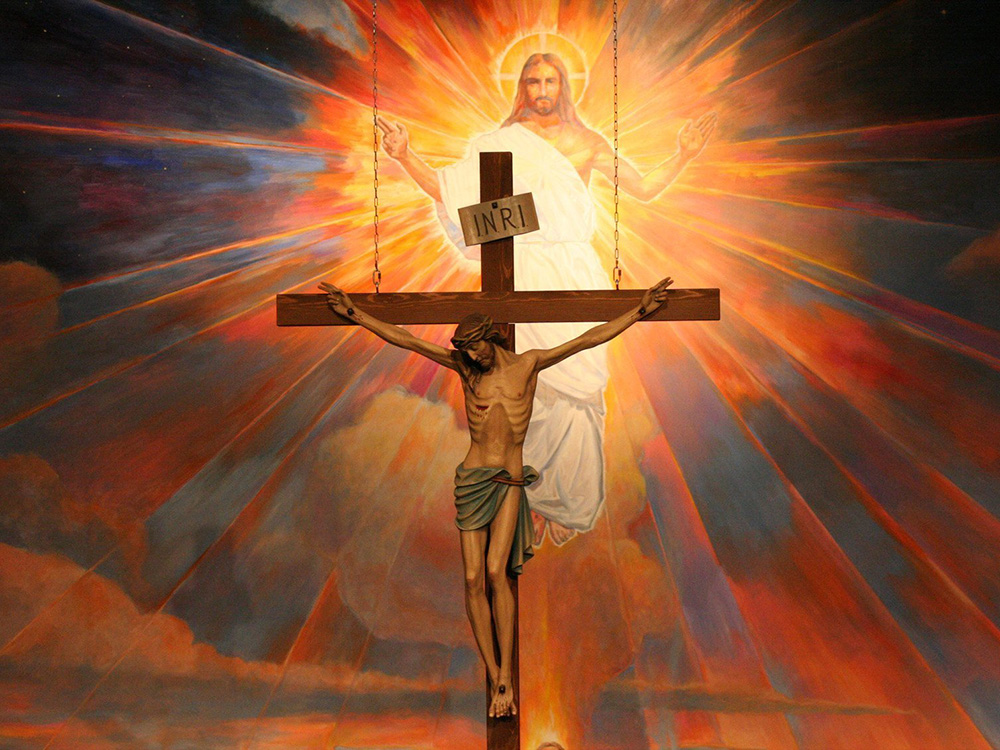
A crucifix hangs before a mural depicting the Resurrection in the sanctuary at St. Timothy Parish in Mesa, Arizona, in this undated file photo. (OSV News/Catholic Sun/J.D. Long-Garcia)
In the mid-1960s, that world-upending era of counterculture, new frontiers and devastating assassinations, Burt Bacharach cowrote the surprisingly popular song "Alfie." The song began, "What's it all about, Alfie?" It raised the existential question that lurked beneath many of the events of the epoch: "Is it just for the moment we live?"
This melancholy question continues to haunt our own era, marked as it is by more screens than encounters, flagrant consumption of people and goods and, for many, the loss of religious or even relational mooring. The readings of the Easter season offer us a vision of Christianity's countercultural response to the question.
Today's Liturgy of the Word draws us to the long view. We hear about Christ, the Alpha and Omega, about heaven opened up and Jesus' expression of his deepest desire, his reason for doing what he did.
In the Gospel, we find ourselves again at table with Jesus as he voices a prayer summarizing the hopes for which he had given his life from the day he started to preach. However much he intuited about his coming passion and death, he had no doubt that his mission would continue, therefore he prayed for all those who would believe in him in the future.
With no idea of what that future would look like, he prayed that they would feel what he always had: "May they all be one as you are in me and I in you. May they so revel in our glory that the world will know that you sent me (John 17:21-23)." Indeed, soon after his ascension, his disciples began to replicate his mission of love and enjoy the freedom he had in the Spirit.
Stephen, filled with the Holy Spirit, gives us our first illustration of this freedom. When the community began to experience jealousy and ethnic division, the apostles appointed Stephen, a "Greek" Jew, along with others to ensure that the goods of the community were shared with impartiality. (Yes, even the primitive Christian community needed to strive for diversity, equity and inclusion.) Stephen, along with other deacons and deaconesses, accepted responsibility for seeing to the well-being of the poor and marginalized (Acts 6:1-7).
Stephen, like Jesus, carried out his mission so well that he threatened religious leaders who lied about him as they had about Jesus. When he preached an eloquent recap of human resistance to salvation that ended with Jesus' passion, Stephen struck a raw nerve. So they lashed out. Luke paints a verbal graphic picture of their frenzy as they covered their ears and rushed to drive him out of the city for a stoning. (Just picture it!)
Advertisement
The key to the story is not the stoning, but Stephen's experience. Although trapped by a furious and vicious posse, he seemed to hardly notice them. Instead, he saw the heavens opening and Christ at God's right hand. He saw eternity, not an end; providence, not death. He envisioned what the author of Revelation heard in the message from the open heavens: Christ, the Alpha and Omega, moving creation toward fulfillment in God.
All three of these readings respond to the Alfie question: What's it all about?
It's all about John's description of creation's destiny in God. It's about the freedom from death and fear that allowed Stephen to appreciate his stoning in a way his persecutors couldn't imagine. It's all about realizing that the heavens are open and God's love permeates all of creation.
Someone wrote the book of Revelation to give hope, to assure people that God was not dead, nor blind or deaf. It describes what Stephen saw: the work of God begun in creation and revealed in Christ as a work in progress that will be continually opposed and never overcome. Describing Christ as the Alpha and Omega, the truly human one who bids us come, proclaims again that God desires our flourishing in the love that expresses God's union with all creation.
And so, as we come to the end of our Easter season, we can ask, "What have we learned? How have we changed? Has our faith in the resurrection of Christ given us courage and freed us from fear? Does the Resurrection give us a vision of the future that grounds us in the meaning of the present? Have we grasped more of the Gospel's alternative to our societies' distorted values?"
If this season has moved us more deeply toward grasping the meaning of our lives, that is grace. If our contemplation of the resurrection has strengthened our awareness of Christ dwelling among us and our part in his mission, that is grace. If we have become freer because we believe in God's future, that is grace. If we know how much more we need, that is our preparation to be filled with the Spirit at Pentecost.



